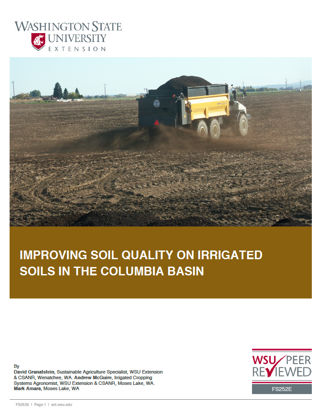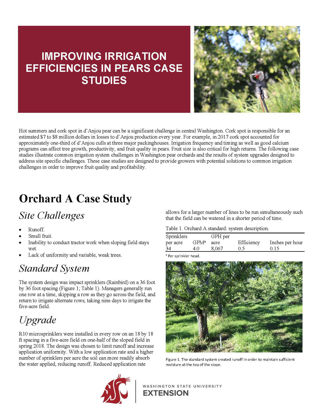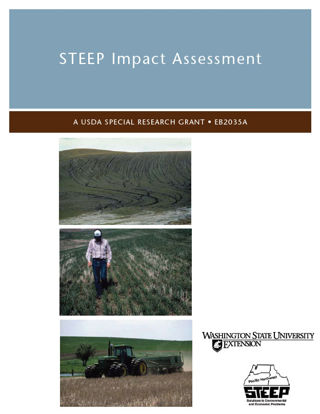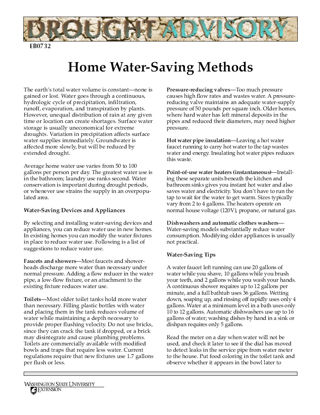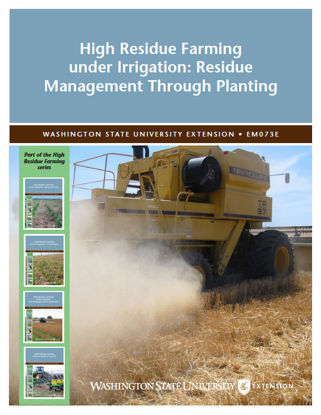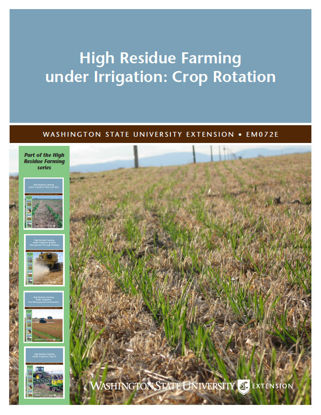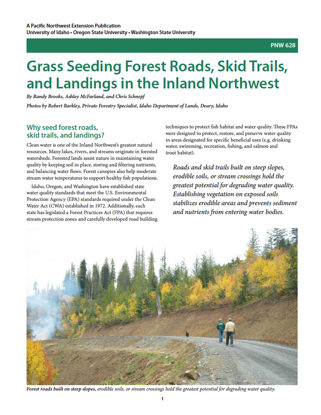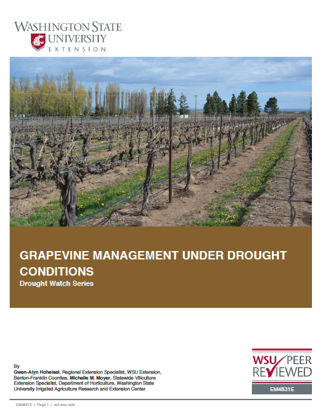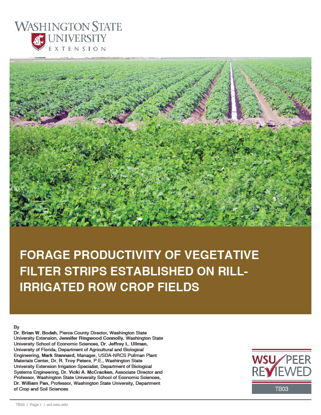You have no items in your shopping cart.
Irrigation and Water
Irrigation and Water
Improving Soil Quality on Irrigated Soils in the Columbia Basin
Soils in the Columbia Basin are highly productive for agriculture but can have problems related to their physical properties that can be influenced by different soil improvement practices. This public ...
$0.00
Improving Irrigation Efficiencies in Pears Case Studies
The following case studies illustrate common irrigation system challenges in Washington pear orchards, providing growers with potential solutions to irrigation issues in order to improve fruit quality and profitability.
$0.00
Impact Assessment - Solutions to Environmental and Economic Problems (STEEP), a USDA Special Research Grant
The 30-year STEEP (Solutions to Environmental and Economic Problems) research and education program is a nationally known endeavor developing conservation practices with a systems approach. As documen ...
$0.00
Home Water-Saving Methods
Water-saving devices and tips can reduce water use in the home. Faucets, shower heads, toilets, pressure-reducing valves, insulation, point-of-use water heaters, washing machines, and automatic dishwa ...
$0.00
High Residue Farming Under Irrigation: Residue Management through Planting (3 in a series of 5)
“High Residue Farming” is an umbrella term for cropping systems in which less tillage is used in order to keep crop residue on the surface of a field. That crop residue provides many benefits to the ...
$0.00
High Residue Farming Under Irrigation: Crop Rotation (2 in a series of 5)
“High Residue Farming” is an umbrella term for cropping systems in which less tillage is used in order to keep crop residue on the surface of a field. That crop residue provides many benefits to the s ...
$0.00
Grass Seeding Forest Roads, Skid Trails, and Landings in the Inland Northwest
Sediments are one of the main nonpoint sources of pollution for lakes, rivers, and streams in the Inland Northwest. This 8-page publication (including cover) shares strategies for protecting waters ...
$0.00
Grapevine Management Under Drought Conditions
Under drought conditions, vineyards are impacted by a variety of environmental factors that growers may or may not be able to control. This publication discusses the many water-related factors that af ...
$0.00
Forage Productivity of Vegetative Filter Strips Established on Rill Irrigated Row Fields
Vegetative filter strips are planted strips of land that typically have grasses to act as a filter to catch and filter pollutants out of runoff water. Use of vegetative filter strips are considered a ...
$0.00

